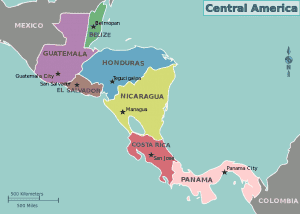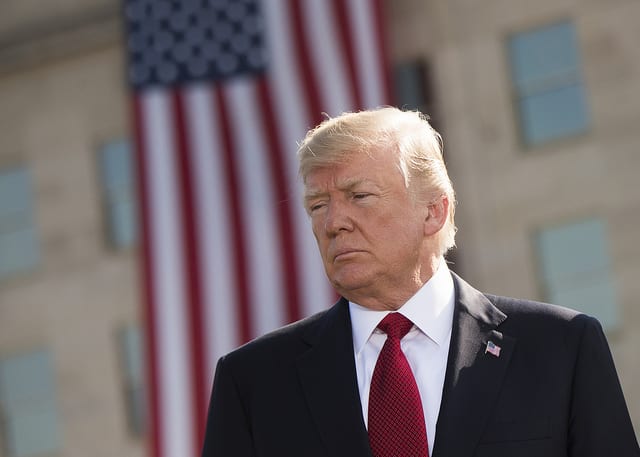Nobody who knows anything would call Guatemala a safe country–except that’s exactly what the Trump administration is doing.
President Trump threatened Guatemala with visa refusals, bans and fees if it didn’t sign a treaty to become a “safe third country” for asylum-seeking migrants heading north.
Scarcely a week ago, Guatemala turned down the terms. Even though its president, Jimmy Morales, signaled his intent to cooperate, the country’s Supreme Court rejected the accord. Its judges said the small Central American nation—sandwiched between Mexico, Honduras and El Salvador—likely lacked the resources to house and care for thousands of stranded refugees.
President Trump’s response was swift and unforgiving: at least on Twitter, he began sending out harsh tweets, threatening the country with reprisals for backing out. Meanwhile, the Department of Homeland Security and other bureaucracies said they were still working towards enhanced cooperation.
But on Thursday, the commander-in-chief got his way, saying the arrangement is back on the books. It works to counter mass immigration from Central America and abroad by forcing refugees to seek alternate accommodations. Anyone who turns up at the U.S. border asking for asylum would first have to show they sought protected status in a “safe third country” before sending a petition to Washington.
Critics and immigration activists have blasted the deal as ‘blatantly illegal,’ an abandonment of existing law and a dereliction of policy. At best, it’s bizarre—nobody can call Guatemala or any of its neighbors “safe.” Along with Honduras and El Salvador, Guatemala sits in the epicenter of a regional gang crisis. Homicide rates in Central America are among the highest in the world. Warring criminal syndicates are responsible for much of the violence, which ranges from aggressive extortion to human trafficking and forced recruitment. Entire neighborhoods in Guatemala City are under the exclusive control of gang members, who in some cases accost cars and force passengers to identify themselves before being allowed to pass through.

“Violent crime, such as armed robbery and murder, is common,” says the State Department’s travel advisory for Guatemala. “Gang activity, such as extortion, violent street crime, and narcotics trafficking, is widespread. Local police may lack the resources to respond effectively to serious criminal incidents.”
As The New York Times notes, it’s likely the risks posed to migrants will reshape the deal—legal challenges will almost certainly be filed against it, both in the United States and Guatemala. It appears the arrangement is on shaky grounds even in Guatemala, where President Morales is purportedly avoiding the term “safe third country” to duck the Supreme Court ruling against it.
“I think it’s very important that we clear things up once and for all,” said Guatemala Interior Minister Enrique Degenhart, who signed the agreement earlier this week in the Oval Office. “This is not a ‘safe third country’ agreement like it’s been interpreted. This is an agreement that has different characteristics and special characteristics.”
But the plan—which focuses on migrants from El Salvador and Honduras—lacks any specific detail on how refugees will be treated. BuzzFeed says it doesn’t even include the word “asylum,” either.
Refugees International said the whole situation is extremely worrying and will likely put people fleeing violence in “grave danger.”
“Guatemala is in no way safe for refugees and asylum-seekers, and all the strong-arming in the world won’t make it so,” said Refugees International President Eric Schwartz.
“This agreement also violates U.S. law and will put some of the most vulnerable people in Central America in grave danger. At the moment, it is not clear exactly what arrangement has been reached in light of the Guatemalan Constitutional Court’s provisional decision against a third country agreement,” Schwartz added. “But the president’s statements on this are of the deepest concern. Such an arrangement would make a mockery of the notion that those fleeing persecution in Central America have any recourse.”
Sources
The U.S. and Guatemala Reached an Asylum Deal: Here’s What It Means


Join the conversation!